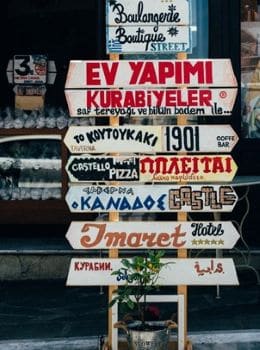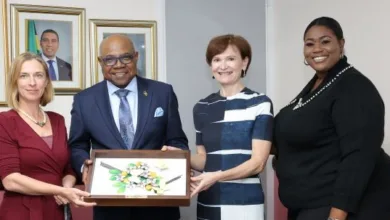Tips on How to Learn a Language While Traveling

Everyone loves traveling, especially when it comes to visiting far-off places you’ve never been to before. While doing so, you can spend some time learning a new language such as Spanish, French, or German.
Data by The World Tourism Organization (UNWTO) indicated that international tourism numbers plummeted by 65% in 2020 due to the global pandemic. As things go back to normal, it might be a great idea to combine traveling and learning a new language. Let’s discuss how you can do that as smoothly as possible in 2021 and come back from your trip with a new language to boot.
1. Escape the Comfort Zone and Travel to a Non-English Country
To learn a new language, you will have to go to a place where your language cannot suffice for moment-to-moment communication. Instead of visiting popular tourist destinations, consider choosing smaller countries or less-known regions in large countries.
Visit Greek mountains, the Russian countryside, or French villages to experience a foreign language and culture first-hand. Going out of your comfort zone to that extent will significantly improve your learning curve and allow you to understand the language far more intimately.
2. Grab a Small Dictionary Before Heading Out
Small dictionaries which can fit into the palm of your hand or a small nook in your backpack can be extremely helpful. Even though you may have internet access in towns and populated areas, moving into mountain or less inhabited regions can diminish that.
You should consider using the online translation service before you head out to translate your travel documents, visa, insurance, and other papers for convenience. Combined with a pocket dictionary, this will make your traveling and learning process much more enjoyable.
3. Write New Words into a Journal as you Travel
It’s a good idea to grab a notebook before you set out and prepare to take plenty of notes about new words and phrases. Jotting down notes and sketching their meaning a la flashcards will do wonders for your memorization and help your learning experience.
It’s also best that you write down correct pronunciations and emphases in each word so that you use them correctly. You can use your journal to communicate with locals and ask for tips on how to better use those words going forward.
4. Download Helpful Apps on your Phone
One of the best benefits of traveling in today’s world is the abundance of digital devices and apps we have available. Wherever you go, you are also bound to find free Wi-Fi, which allows you access to a plethora of resources.
Make sure to download translation apps before you head out on your trip to better prepare for the learning process. You can refer to them any time you get confused by new words or want to communicate with locals on the spot.
5. Break the Ice – Speak to Locals as Much as Possible
Once you spend some time in a foreign country and learn a bit about the language first-hand, you should try to speak up a little. Speaking up will be very difficult at first, and you will feel anxious until you break the proverbial ice. However, locals will undoubtedly be very happy about your attempts to learn their language, and they are bound to offer you a helping hand.
When you achieve a better grasp of another language, you can try combining the words you’ve learned into phrases and statements. Again, thanks to the fact that you are in a native-speaking region, locals will assist you in correcting any mistakes you’ve made without any fuss.
In Conclusion
Learning a new language will undoubtedly enrich you as a person and add to your personal development. While it may take courage to travel to a different country and learn its language, you will be thankful to yourself for doing it. For example, if you visit Japan you can research what languages do Japanese speak and maybe you’ll be ready for conversation even if you don’t know any Japanese phrases.
Choose a country where you will be forced out of your comfort zone in terms of language barriers to make the most of your trip. You will be conversing with locals and having the time of your life before you know it.
Bio: Melony Hart has slowly built up a career as a content writing specialist, copywriting expert, and editor for digital publications. Her writing portfolio consists of articles, case studies, and how-to guides, as she strives to provide her readers with up-to-date tips and information. Melony enjoys traveling and journaling about her trips abroad in her spare time as well as learning new languages while doing so.





